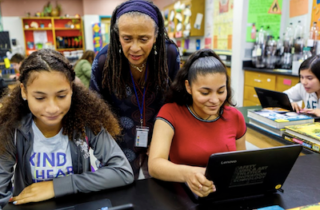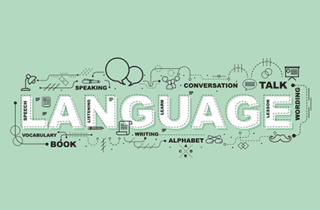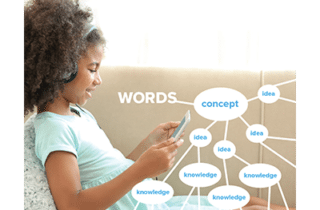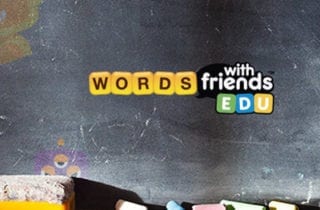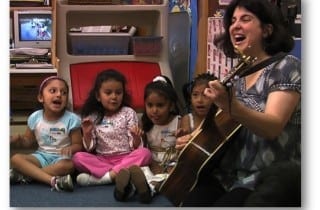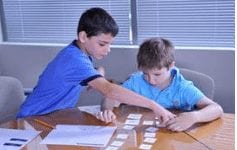In this edWebinar, Broward’s Dr. Daryl Diamond will discuss how the district’s innovative model for professional development, combined with a cohesive approach to edtech that’s aligned with instructional objectives, led to success.
In this interactive edWebinar, participants will explore, discuss, and experience research-informed, classroom-tested approaches for developing academic language.
In this edWebinar, gain strategies for teaching your students and learn why acquiring core vocabulary is critical for building foundational literacy skills.
In this edWebinar, Dr. Leslie Maniotes discusses literacy skills and show how to unlock the power of curiosity in all learners.
Interested in using games as a learning tool in your classroom? Looking for new ways to engage your students in language? In this webinar, educator Jeff Brain and Words With Friends EDU’s Abby Speight will show you how Words With Friends EDU – the new, free, educational version of Words With Friends – can help!
In this research-driven session, Kevin Baird, Chairman at the nonprofit Center for College & Career Readiness, presents practical, pragmatic methods to use digital content in groups to drive deeper accountable conversations.
This edWeb.net Arts & Music in Early Learning webinar explored how and why the content and process of developmentally appropriate music activities can support young children’s language and literacy skill development.
“Your students’ work is being affected by their out-of-school video gaming! The average gamer plays 13 hours a week.” Don’t you wish your students were spending that much time reading and writing outside of your classroom? Well—in many cases they are!
It’s the number one priority for our classrooms as we get back to school. How do we plan our lessons, and integrate resources, to support deeper vocabulary investigation and greater collaboration and conversation?
Students need to be learning 2,000 – 3,000 words a year to keep up with expected levels of vocabulary growth. Teaching 10 words a week is only going to add up to 300-400 per school year. The major way to grow vocabulary is to teach students a process for figuring out what words mean as they confront unfamiliar words in text.


